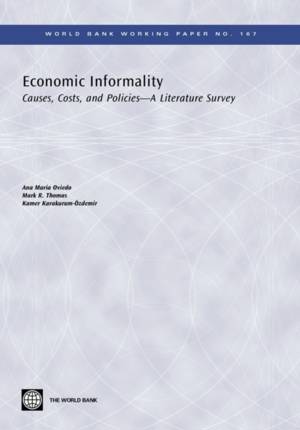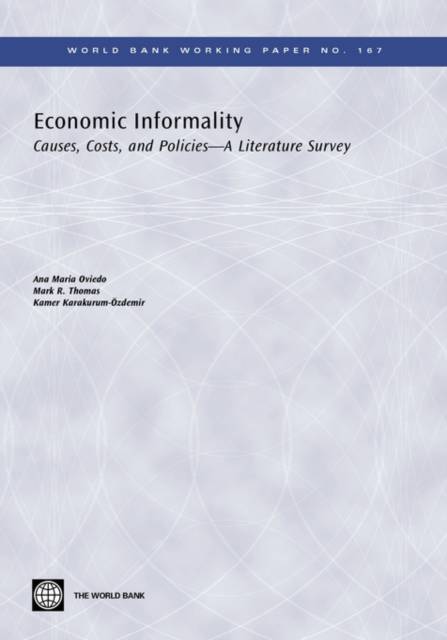
Bedankt voor het vertrouwen het afgelopen jaar! Om jou te bedanken bieden we GRATIS verzending (in België) aan op alles gedurende de hele maand januari.
- Afhalen na 1 uur in een winkel met voorraad
- In januari gratis thuislevering in België
- Ruim aanbod met 7 miljoen producten
Bedankt voor het vertrouwen het afgelopen jaar! Om jou te bedanken bieden we GRATIS verzending (in België) aan op alles gedurende de hele maand januari.
- Afhalen na 1 uur in een winkel met voorraad
- In januari gratis thuislevering in België
- Ruim aanbod met 7 miljoen producten
Zoeken
Economic Informality
Causes, Costs, and Policies--A Literature Survey Volume 167
Ana Maria Oviedo, Mark R Thomas, Kamer Karakurum-Özdemir
€ 25,45
+ 50 punten
Omschrijving
This survey assembles recent theoretical and empirical advances in the literature on economic informality and analyzes the causes and costs of informality in developed and developing economies. Using recent evidence, the survey discusses the nature and roots of informal economic activity across countries, distinguishing between informality as the result of "exclusion" and "exit." The survey provides an extensive review of recent international experience with policies aimed at reducing informality, in particular, policies that facilitate the formalization process, create a framework for the transition from informality to formality, lend support to newly created firms, reduce or eliminate inconsistencies across regulation and government agencies, increase information flows, and increase enforcement.
Specificaties
Betrokkenen
- Auteur(s):
- Uitgeverij:
Inhoud
- Aantal bladzijden:
- 48
- Taal:
- Engels
- Reeks:
- Reeksnummer:
- nr. 167
Eigenschappen
- Productcode (EAN):
- 9780821379967
- Verschijningsdatum:
- 1/06/2009
- Uitvoering:
- Paperback
- Formaat:
- Trade paperback (VS)
- Afmetingen:
- 170 mm x 249 mm
- Gewicht:
- 113 g

Alleen bij Standaard Boekhandel
+ 50 punten op je klantenkaart van Standaard Boekhandel
Beoordelingen
We publiceren alleen reviews die voldoen aan de voorwaarden voor reviews. Bekijk onze voorwaarden voor reviews.









